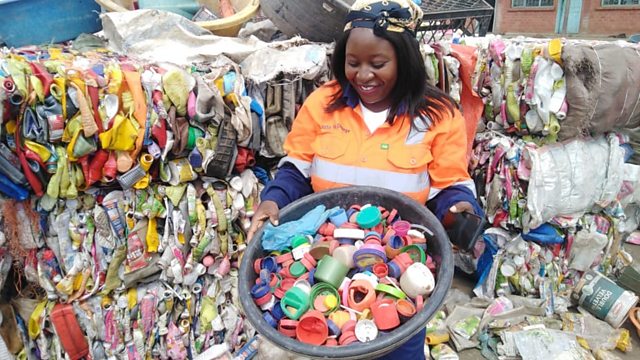Turning waste into money
How can waste be turned into a business opportunity? We hear from the informal waste picking economy, over ten million people who sell plastic for a living.
How does plastic get from your bin to the recycling plant? According to The Pew Charitable Trust, 60% of plastic recycling globally comes from individual waste pickers, an informal economy of millions of people who go out picking up plastic every day. As the world starts to look at ways to reduce our plastic waste, how might this impact the livelihoods of the waste pickers who rely on it?
We hear from Gladys Mwamba at Plastic for Change in Zambia, who spotted an opportunity to use her Chinese language skills by acting for local waste pickers selling to Chinese recycling firms. On a larger scale, a for profit social enterprise called The Plastic Bank in Canada is working with over 20,000 waste collectors in Brazil, Indonesia, The Philippines and Egypt. They offer above market prices for plastic, alongside subsidised education programmes and other necessities such as food and fuel. Rich Gower, a senior economist at Tearfund, a Christian international development charity, tells us why an international plastics treaty this year is a key moment for waste pickers. In many countries waste pickers are organising into unions or co-operatives. We speak to representatives from SWaCH, a co-operative of waste pickers in Pune, South India, that has been running since 1993.
Presented and produced by Beatrice Pickup.
Additional reporting by Mutuna Chanda.
Image: Gladys Mwamba at Plastic for Change in Kitwe, Zambia; Credit: Mutuna Chanda
Last on
More episodes
Broadcast
- Mon 9 May 2022 07:32GMTΒι¶ΉΤΌΕΔ World Service
Podcast
-
![]()
Business Daily
The daily drama of money and work from the Βι¶ΉΤΌΕΔ.


